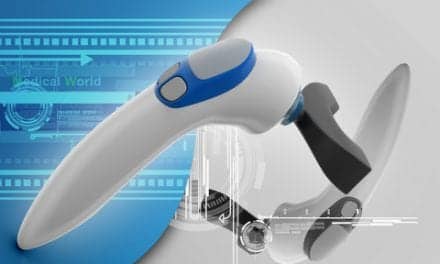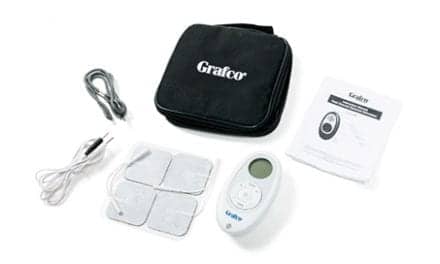A new randomized controlled clinical study finds that Hinge Health’s Enso delivers 2x more pain reduction and improves mobility 3x compared to a control device. Researchers from the University of California San Francisco and Memorial Sloan Kettering Cancer Center published the study in the Journal of Pain Research.
Enso, an FDA-cleared device, is a wearable, nonaddictive, high-frequency impulse therapy technology for better pain management and functional mobility. The findings are a significant milestone as patients increasingly look for pain management alternatives. While there are decades of research on short-term pain reduction from lower-frequency devices, this is the first study demonstrating durable pain relief and improved functional mobility with a high-frequency impulse therapy device over a four-week time frame, according to the company.
Hinge Health Enso is one of the most advanced wearable technologies for electrical nerve stimulation. Key findings from the four-week randomized controlled study include the following:
- Enso participants decreased pain more than twice as much compared to the control group (-54.7% Enso vs. -25.3% control, p ≤ 0.05).
- Enso participants had 2.5x more improvement in walking speed, as measured by the Six-Minute Walk Test (30.1% Enso vs. 12.3% control, p ≤ 0.05).
- Enso participants improved mobility 3.4x, as measured by the Timed Up and Go Test (65.9% Enso vs. 19.4% control, p ≤ 0.05).
“MSK pain is extremely common, with one in two Americans experiencing chronic back or joint pain in any given year,” says Dr. Jeffrey Krauss, Hinge Health’s chief medical officer. “This study further validates the efficacy of Enso. Enso has already helped thousands by improving functional mobility and quickly delivering noninvasive, nonaddictive, lasting pain relief via an easy-to-use wearable.”
A randomized controlled trial of the high-frequency impulse therapy device versus a control sham device was conducted with 36 patients seeking care for chronic low back pain from five orthopedic and pain center sites in California. The clinical study was sponsored by Hinge Health.
Photo: HFIT (high-frequency impulse therapy) device (left), HFIT device worn on model (right).





